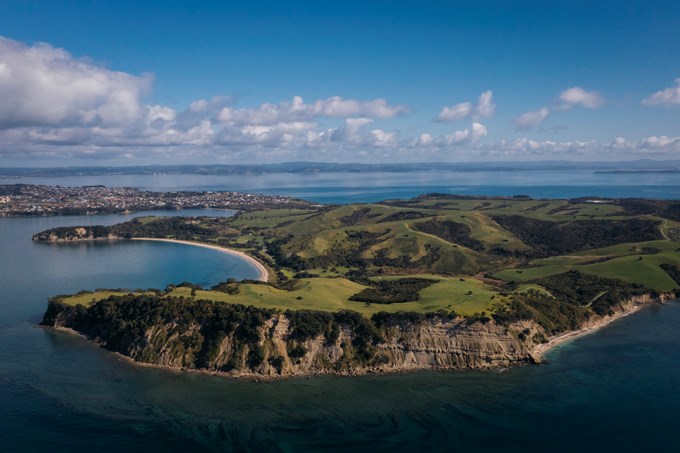For many in Tāmaki Makaurau, this year has challenged our relationship with water. Two years of drought followed by a year of record rainfall has reminded Aucklanders the importance of a strategic approach to water.
The Auckland Water Strategy (2022 – 2050) is Auckland Council’s 30-year approach to water, guided by the vision te mauri o te wai, that the life-sustaining capacity of Auckland’s water is protected and enhanced.
“We have seen firsthand the impacts of climate change from droughts to devastating floods. The purpose of the Auckland Water Strategy is to set the long-term strategic direction for the wider council whānau in relation to both its responsibilities and aspirations for water,” says Councillor Richard Hills, Chair of the Planning, Environment and Parks Committee.
“Aucklanders should be congratulated for already surpassing our water usage target, although this is partly due to the rainfall we have had it still shows that residents and businesses are thinking about how much water they use and how to conserve it, something we will need to work on as we move into summer.
“The Auckland Water strategy allows us to take a strategic approach as more and more water-related projects and programmes are introduced. It is a foundation for us to ensure we are showing leadership and vision in a sustainable and achievable way while aligning with our commitments in Te Tāruke-ā-Tāwhiri: Auckland's Climate Plan.”
The Planning, Environment and Parks Committee received the inaugural annual update, covering the period 1 July 2022 to 30 June 2023.
“The guiding principle behind the Auckland Water Strategy is ‘Te Mauri o Te Wai o Tāmaki Makaurau’ – that the life-sustaining capacity of Auckland’s waters is protected and enhanced,” says Councillor Angela Dalton, Deputy Chair of the Planning, Environment and Parks Committee.
“The Auckland Water Strategy sets out aspirational and long-term goals and this progress report is the first of a series of annual reports. Due to its nature, it is focused on specific actions but it is important to remember that this alone does not reflect the full value and impact of the Strategy.”
The Water Strategy framework centres around eight Strategic Shifts:
- Te Tiriti Partnership
- Empowered Aucklanders
- Sustainable Allocation and Equitable Access
- Regenerative Water Infrastructure
- Water Security
- Integrated Land-Use and Water Planning
- Restoring and Enhancing Water Ecosystems
- Pooling Knowledge
What progress has been achieved?
The July 2023 Annual Progress Report shows that the Auckland Water Strategy is being delivered through multiple new and ongoing work programmes across Auckland Council and council-controlled organisations.
Furthermore, 90 per cent of the actions scoped to begin in year 1 are progressing in the timeframes provided in the implementation plan.
The Implementation Plan identifies three actions for completion in year 1 (2022/2023), which are underway at the time of reporting and anticipated to be completed in Year 2 (2023/2024).
While these three actions are not yet complete, four of the Strategy’s 58 actions have been completed, representing positive progress towards considering te mauri o te wai in the council group’s decision-making.
Watercare’s 2022 Citizens' Assembly is a great example of empowering Aucklanders to make decisions for better water outcomes, one of eight strategic shifts in Auckland’s Water Strategy.
This partnership between Watercare and Koi Tū (the University of Auckland's Centre for Informed Futures) started in 2021, and took a deliberative democracy approach to the question of Auckland's water supply. Watercare's Board accepted direct recycled water as the next source of water for Auckland, and included feedback from mana whenua in their response to all four (accepted) recommendations on 1 November 2022.
Water Security targets achieved
Auckland has already met the water supply and demand targets set out for 2030, noting that the record rainfall experienced during the reporting period means that efforts to increase efficient use and diversify our water supply will continue through ongoing implementation of the Strategy.
Based on figures provided by Watercare, the average consumption of drinking water in Auckland as of June 2023 was 241.33 litres/day/person.[1]
This exceeds the 2025 target (253 litres/day/person) and even exceeds the 2030 target (247 litres/day/person).
The recycled water capacity for beneficial use in Auckland between 1 July 2022 to 30 June 2023 was 21.70 million litres/day (MLD), which exceeds the 2030 target of 20 MLD.
This does not include rainwater tank volumes across Auckland, and therefore is estimated to be even greater.
What’s next?
The Auckland Water Strategy identifies 34 actions to be delivered by July 2025.
Resource constraints are already challenging council group staff to progress the significant expectations for delivery in the first three years of the Strategy.
Therefore, staff have undertaken a prioritisation exercise to support decision-making to resource the highest-priority directions from the Strategy over the coming years. This is based on the following criteria:
- Urgency: when the action is targeted for delivery in the Implementation Plan.
- Impact: how directly the action protects and enhances te mauri o te wai.
- Low risk: the likelihood that factors outside our control could derail progress.
- Alignment: with other ongoing and high priority activities for Auckland Council.
We will continue to progress the Auckland Water Strategy and its vision as the Auckland Council group progresses water-related programmes and projects including Resilient Auckland (including the Making Space for Water programme), National Policy Statement for Freshwater Management, and Water Services Reform transition.
[1] This is within the territorial authority district (*litres plus/minus 2.5%) (12 month rolling average)


